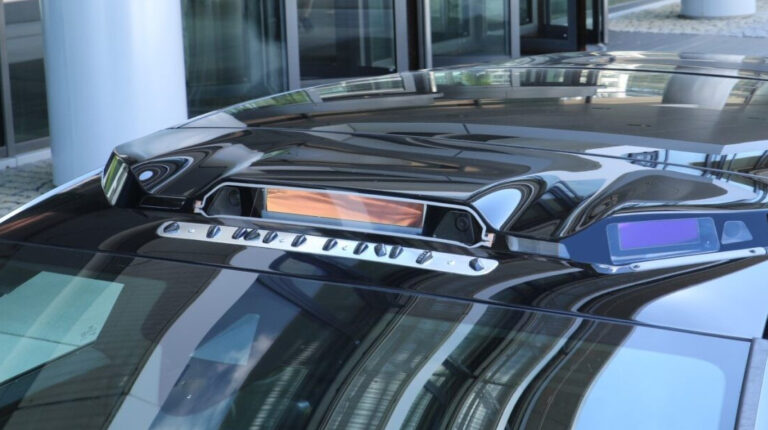Webasto, an automotive supplier, has unveiled a prototype roof sensor module (RSM) designed to advance automated and autonomous driving capabilities through enhanced sensor integration. Positioned on the vehicle’s roof for optimal visibility, the RSM integrates a polycarbonate panel to seamlessly house critical sensors.
In collaboration with Covestro, Webasto developed the module’s bezel using Makrolon AG2477, a transparent polycarbonate that facilitates effective sensor signal transmission. The bezel was manufactured on Covestro’s 2300-ton injection molding machine, incorporating Bayblend T95 MF, a black mineral-reinforced PC/ABS blend, for structural robustness and aesthetic appeal.
The collaboration’s goal was to meet stringent mechanical requirements while providing an attractive design with transparent sensor windows and glass-like surfaces, according to both companies. The module’s surface was also coated with polysiloxane coatings to ensure durability and uniformity.
The RSM’s functionality includes radar, lidar sensors and cameras to measure distance and speed and detect objects, traffic lights, signs and road markings. It also includes an integrated thermal management system to regulate the temperature of the electronics, crucial for optimal sensor performance across various weather conditions.
The sensors are best mounted on the roof as the highest point of the vehicle to ensure the most complete overview of the environment. The use of Makrofol ST polycarbonate film in specific sections provides high transparency for lidar signals.
Webasto and Covestro presented their collaborative development at the international VDI Congress PIAE 2024, held in Mannheim, Germany, June 19 and 20, 2024.


